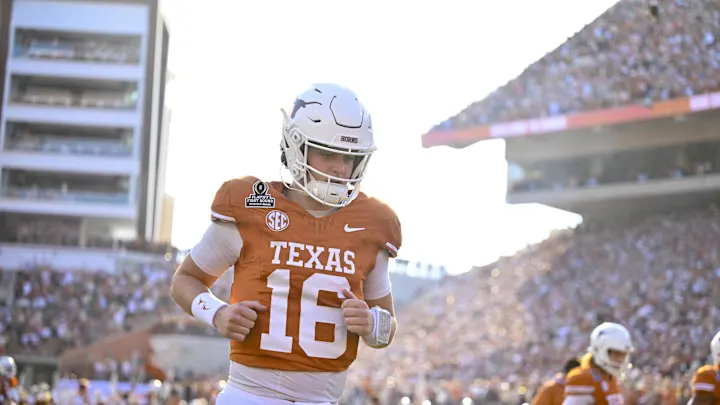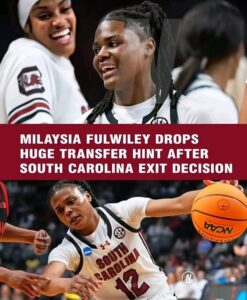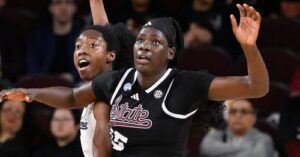
Will Arch Manning of the Texas Longhorns skip the 2026 NFL Draft? Expert Opinion
Arch Manning, the highly anticipated quarterback for the Texas Longhorns, is poised to make a significant impact on the college football landscape. As he prepares to step into the starting role for the Longhorns in 2025, the question arises: will he declare for the 2026 NFL Draft, or will he choose to remain at Texas for another season? This analysis delves into the factors influencing Manning’s decision, examining his readiness for the NFL, the dynamics of the 2026 quarterback class, and the strategic considerations that may guide his path forward.
Arch Manning’s journey to Texas has been marked by high expectations and a legacy of football excellence. After redshirting in 2023 and serving as a backup in 2024, Manning is set to become the starting quarterback for the Longhorns in 2025 following Quinn Ewers’ departure to the NFL. In his limited appearances, Manning has demonstrated impressive skills, including a 67.8% completion rate and nine touchdowns with only two interceptions His performance has generated considerable excitement among fans and scouts alike, positioning him as a potential top prospect for the 2026 NFL
The 2026 NFL Draft is shaping up to be a competitive and talent-rich event, particularly in the quarterback position. Prospects like Drew Allar, Garrett Nussmeier, and Carson Beck are expected to enter the draft, each bringing unique skills and experiences to the table This depth of talent means that Manning will need to distinguish himself not only through his on-field performance but also by showcasing his leadership, decision-making, and adaptability in high-pressure situations.
One of the most compelling reasons for Manning to remain at Texas through the 2026 season is the opportunity for continued development. While his early performances have been promising, additional seasons as a starter would allow him to refine his skills, gain invaluable game experience, and build a more robust college football resume. This extended exposure could enhance his draft stock and better prepare him for the challenges of the NFL
The Manning family’s legacy in football is well-established, with both Peyton and Eli achieving significant success in the NFL. Their experiences and insights could play a crucial role in advising Arch on the timing of his transition to professional football. Given their understanding of the demands and challenges of the NFL, their guidance could influence Manning’s decision to prioritize readiness over early entry into the draft.
Manning’s Name, Image, and Likeness (NIL) opportunities have been substantial, with a reported valuation of $6.6 million, surpassing other prominent college athletes These financial incentives, coupled with the college experience, offer Manning a platform to further develop both on and off the field. The ability to capitalize on NIL deals while continuing his education and athletic development could make remaining at Texas an attractive option.
The timing of the NFL Draft and the specific needs of professional teams will also play a significant role in Manning’s decision. Entering the draft in 2026 may position him favorably, especially if teams are looking for a quarterback with his skill set. However, waiting until 2027 could allow him to enter a draft with potentially fewer quarterback prospects, increasing his chances of being a top pick
Analysts have varied perspectives on Manning’s potential draft timeline. Some suggest that he should remain at Texas through the 2026 season to gain more experience and refine his skills, which could enhance his draft prospects citeturn0search1. Others believe that his talent and the depth of the 2026 quarterback class could make him a strong candidate for an early draft selection. Ultimately, the decision will depend on Manning’s assessment of his readiness and the opportunities available in both the college and professional arenas.
Arch Manning’s decision regarding the 2026 NFL Draft will be influenced by a combination of personal development, family guidance, market conditions, and strategic considerations. While the allure of early entry into the professional ranks is significant, the benefits of additional college experience and development could outweigh the immediate advantages of declaring for the draft. As Manning continues to evolve as a player and a person, his decision will undoubtedly be one of the most closely watched in college football.





